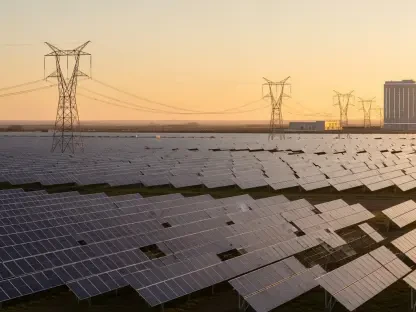Climate change has evolved far beyond a mere environmental concern, emerging as a profound health crisis that strikes at the heart of communities across Australia, with its vast landscapes and unique ecosystems making it particularly vulnerable to the escalating impacts of global warming. These impacts manifest in scorching heatwaves, destructive bushfires, and relentless floods. These events do more than alter the environment; they directly threaten human lives by increasing the incidence of heat-related illnesses, spreading infectious diseases, and exacerbating mental health struggles. As one of the world’s leading exporters of fossil fuels, Australia bears a significant responsibility for contributing to the very emissions driving these changes. This complex interplay between environmental shifts and public well-being demands urgent attention and action. Exploring the depth of this crisis reveals not only the immediate dangers but also the systemic challenges, including government policies that often contradict the stark warnings of scientific assessments. The following discussion delves into these critical connections, highlighting why this issue can no longer be ignored.
Unseen Threats to Human Well-Being
The health impacts of climate change in Australia are becoming increasingly evident, with rising temperatures posing a direct threat to vulnerable populations. Heatwaves, now more frequent and severe, are linked to a surge in heatstroke and dehydration cases, particularly among the elderly and those with pre-existing conditions. Hospitals report higher admissions during extreme heat events, straining healthcare systems already under pressure. Beyond immediate physical harm, prolonged exposure to high temperatures disrupts sleep patterns and reduces overall quality of life, creating a ripple effect on community health. This growing burden illustrates how environmental changes are not distant threats but immediate crises that alter daily existence for many Australians, demanding swift adaptation and mitigation strategies to protect those most at risk.
Another dimension of this health crisis lies in the spread of infectious diseases fueled by shifting climates. Warmer temperatures and changing rainfall patterns expand the habitats of disease-carrying pests like mosquitoes, increasing the prevalence of illnesses such as dengue fever and Ross River virus in regions previously unaffected. This geographic shift challenges public health infrastructure, as areas once considered safe must now prepare for new threats. Additionally, waterborne diseases rise after flooding events, which are becoming more common due to intense weather patterns. These indirect consequences of climate change highlight the intricate links between environmental stability and human health, underscoring the need for proactive measures to monitor and control disease vectors before they spiral into larger epidemics that could overwhelm local resources.
A Major Player in Global Emissions
Australia’s role in the global climate crisis cannot be understated, as it contributes a staggering 4.5% of worldwide carbon dioxide emissions, largely through its fossil fuel exports. Ranking as the third-largest exporter of coal, oil, and gas, the nation’s economic reliance on these industries places it at the center of the emissions debate. The port of Newcastle, recognized as the world’s largest coal export hub, symbolizes this outsized impact, shipping millions of tons of coal annually to fuel global energy demands. While domestic emissions are significant, it’s the exported fossil fuels—accounting for roughly 80% of the country’s emissions footprint—that amplify Australia’s responsibility. This position creates a moral and practical imperative to lead in reducing emissions, as the consequences of inaction are felt not just globally but within Australian borders through worsening health outcomes tied to climate shifts.
Compounding this issue is the challenge of balancing economic interests with environmental and health priorities. Fossil fuel industries provide jobs and revenue, yet their expansion directly undermines efforts to curb global warming, which in turn exacerbates public health risks like respiratory issues from air pollution. Coal combustion, for instance, releases fine particulate matter that contributes to chronic conditions such as asthma and heart disease, disproportionately affecting children and low-income communities near mining areas. The tension between short-term economic gains and long-term health sustainability reveals a critical need for transition plans that prioritize renewable energy while supporting affected workers. Without such a shift, Australia risks perpetuating a cycle where its contributions to climate change continue to harm both global ecosystems and the well-being of its own citizens.
Policy Discrepancies Undermining Progress
A glaring contradiction exists within Australian government policies, where official recognition of climate risks clashes with decisions to expand fossil fuel projects. The National Climate Risk Assessment identifies 63 significant threats across sectors like health, economy, and security, painting a dire picture of the future if emissions aren’t curbed. Yet, approvals for initiatives like the North West Shelf Extension, which permits offshore gas processing until 2070, suggest a disregard for these warnings. Such actions stand in stark opposition to international commitments under the Paris Agreement, which calls for substantial emissions reductions to limit global warming. This inconsistency not only delays progress on climate goals but also directly jeopardizes public health by perpetuating the environmental conditions that drive heat-related deaths and disease outbreaks, leaving communities to bear the consequences.
Further scrutiny reveals that current emissions reduction targets fall short of what is required to address the scale of the crisis. Aiming for a 62-70% reduction below 2005 levels by 2035, Australia’s goals are criticized by experts and advocacy groups as inadequate when measured against the urgent timelines outlined by the Intergovernmental Panel on Climate Change (IPCC). This shortfall reflects a hesitancy to fully commit to transformative change, prioritizing industrial interests over the pressing need to safeguard population health from climate-driven threats. The ethical implications are profound, as delays in action translate to increased suffering from preventable conditions linked to environmental degradation. Bridging this policy gap remains a critical challenge, requiring stronger accountability mechanisms to ensure that commitments translate into tangible outcomes for both the environment and public well-being.
Mobilizing Medical Expertise for Change
Health professionals hold a pivotal role in addressing the climate-driven health crisis, leveraging their trusted status to influence policy and public opinion. Drawing from historical successes in combating issues like tobacco use and asbestos exposure, medical experts are increasingly vocal about the urgent need to treat climate change as a public health emergency. Their expertise provides a unique perspective on how environmental shifts translate into tangible harm, from rising hospital admissions during heatwaves to mental health crises following natural disasters. By advocating for robust climate policies, these professionals can help shift the narrative, emphasizing that protecting the planet is inseparable from protecting human lives. Their involvement is not just beneficial but essential in driving systemic change that prioritizes health over short-term economic gains.
Beyond advocacy, the medical community can lead by example, integrating sustainability into healthcare practices and supporting research on climate-related health risks. Hospitals and clinics, often significant energy consumers, are beginning to adopt renewable energy solutions and reduce waste, demonstrating practical steps toward mitigating their environmental impact. Additionally, organizations like Doctors for the Environment Australia (DEA) are amplifying calls for action by publishing reports on the health harms of fossil fuels, including air pollution and plastic contamination. These efforts underscore the intersection of clinical responsibility and environmental stewardship, urging policymakers to heed scientific evidence. As trusted voices, health professionals have the potential to galvanize public support, creating a groundswell of demand for policies that address the root causes of climate change while safeguarding future generations from its devastating health effects.
Pathways to a Healthier Future
Reflecting on the multifaceted challenges posed by climate change, it becomes clear that Australia faces a defining moment in its approach to public health and environmental responsibility. The undeniable links between rising temperatures, extreme weather, and deteriorating well-being have been laid bare, with heatwaves and disasters leaving lasting scars on communities. Government policies, often at odds with scientific warnings, have perpetuated a cycle of risk by favoring fossil fuel expansion over meaningful emissions cuts. The significant role of Australia in global emissions has only heightened the urgency to act, as every delay translates into worsening health outcomes for its citizens and beyond.
Looking ahead, actionable steps emerge as vital to breaking this cycle and forging a sustainable path. Strengthening emissions targets to align with IPCC recommendations offers a starting point, alongside phasing out approvals for new fossil fuel projects. Investing in renewable energy infrastructure promises not only to reduce emissions but also to create healthier environments by cutting air pollution. Empowering health professionals to lead advocacy efforts ensures that the human cost of inaction remains at the forefront of policy debates. These measures, if prioritized, hold the potential to transform Australia’s response, turning a health crisis into an opportunity for resilience and renewal.









